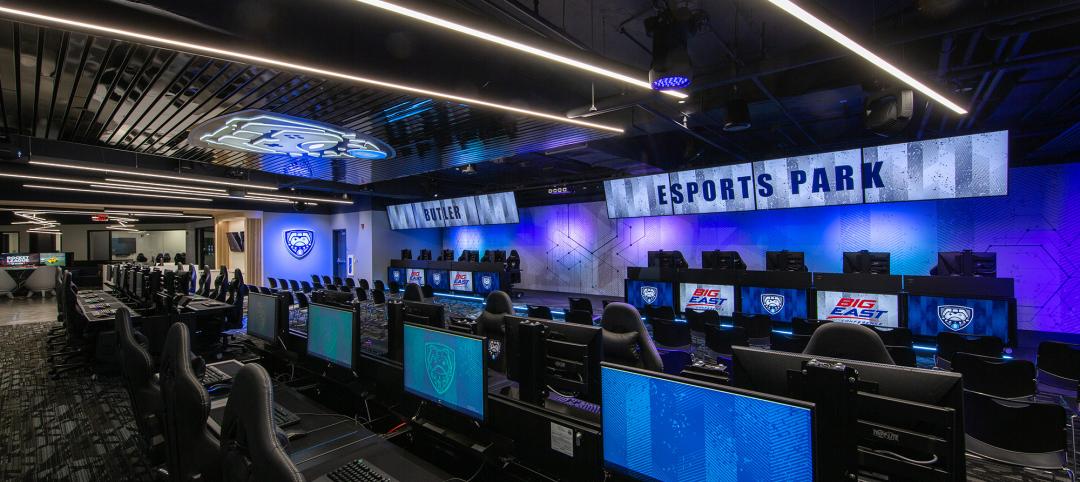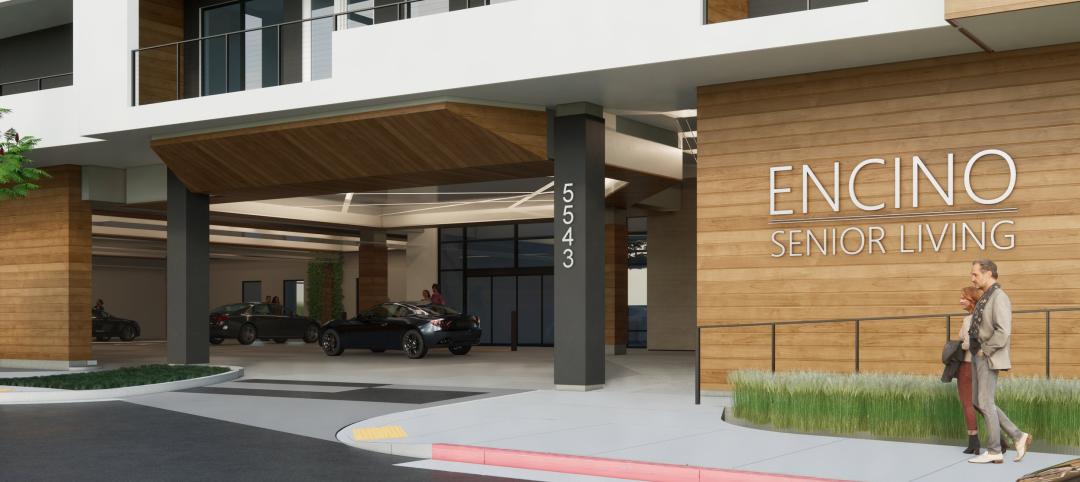| The intra-operative MRI system at the United Hospital Nasseff Neuroscience Center in St. Paul, Minn., will allow neurosurgeons to perform real-time MRI scans during operations to confirm that all cancerous tissue is removed during procedures. |
11. Operating Room-Integrated MRI will Help Neurosurgeons Get it Right the First Time
A major limitation of traditional brain cancer surgery is the lack of scanning capability in the operating room. Neurosurgeons do their best to visually identify and remove the cancerous tissue, but only an MRI scan will confirm if the operation was a complete success or not. Consequently, patients must be stitched up and wheeled into the MRI room for further scans. If cancer is still present, further surgery is often required.
To avoid putting its patients through this painful cycle of surgeries and scans, the United Hospital Nasseff Neuroscience Center in St. Paul, Minn., is collaborating with HDR Architecture on an intra-operative MRI system. This "MRI on a track" will be able to move between two operating rooms and spin in any direction, allowing neurosurgeons to perform real-time MRI scans during operations.
"The neurosurgeon can use the intra-operative MRI to confirm that the entire tumor was removed before closing, thus reducing the need for additional operations," says Douglas S. Wignall, AIA, RAIC, international healthcare director with HDR Architecture, Omaha, Neb. In addition, Wignall says the mobility of the system allows the neurosurgeon to update images quickly and efficiently so that surgical adjustments and decisions can be made with pinpoint accuracy.
"This is one example of how architecture can help save lives," says Wignall.
| The new SYNC modular nursing station line from Nurture by Steelcase is designed to accommodate both centralized and decentralized spaces. |
12. Nursing Stations Go Modular
Modular nursing stations are designed to accommodate virtually any healthcare environment, whether for centralized or decentralized spaces, standard or high-tech facilities, or new or retrofit projects. HDR Architecture collaborated with Nurture by Steelcase on the SYNC line, which was inspired by the way people fit in cockpits and automobiles. It accommodates multiple users, heights, and movements.
The centralized solution is offered in three fixed heights—28½, 36, and 42 inches—to provide seated, service counter, and standing solutions. Widths are available in one-foot increments from five to nine feet, and integrated monitor arms have 160-degree adjustability for sharing information between caregivers. The product sits elevated off the floor, creating a light, minimalistic look.
The decentralized products provide height-adjustable (23 to 48 inches), fixed, or combination surfaces in eight shapes. Two-person configurations allow each work surfa
ce to be adjusted individually.
| A. Secondary MOB. B. MOB. C. Hospital. D. Nursing units. E. Signature entry rotunda. F. Future construction, including hospital expansion, additional MOB, clinic, and parking. G. Future helipad. |
13. Template Helps Hospitals Open Quickly and Efficiently
Faced with the unprecedented task of having to replace half its California hospital beds by 2015, Oakland, Calif.-based Kaiser Permanente, the nation's largest nonprofit HMO, enlisted SmithGroup and Chong Partners Architecture (now Stantec Architecture) to collaborate on the design of a new hospital template—a state-of-the-art, prototypical hospital that could be built on many different sites with only minimal changes to the basic concept for quick and efficient construction.
Luckily, the team wasn't starting from scratch. Over the years Kaiser had developed best-practices templates for emergency departments, patient rooms, and other individual clinical spaces and those pieces were combined into a single configuration for an entire hospital. The resulting template consists of common planning concepts, floor plans, equipment and furnishings, and structural and building systems. Exterior skins and colors vary from site to site. So far Kaiser has built five hospitals using the template, which shaved 15 to 18 months off its typical new hospital timeline.
Related Stories
Office Buildings | Oct 16, 2023
The impact of office-to-residential conversion on downtown areas
Gensler's Duanne Render looks at the incentives that could bring more office-to-residential conversions to life.
Giants 400 | Oct 11, 2023
Top 100 Industrial Sector Architecture Firms for 2023
Ware Malcomb, Arcadis, Stantec, and Gresham Smith top the ranking of the nation's largest industrial facility sector architecture and architecture/engineering (AE) firms for 2023, as reported in Building Design+Construction's 2023 Giants 400 Report.
Products and Materials | Oct 10, 2023
‘Works with WELL’ product licensing program launched by International WELL Building Institute
The International WELL Building Institute (IWBI) recently launched the Works with WELL product licensing program. Works with Well certification allows manufacturers to demonstrate that their products align with WELL strategies.
Mass Timber | Oct 10, 2023
New York City launches Mass Timber Studio to spur more wood construction
New York City Economic Development Corporation (NYCEDC) recently launched New York City Mass Timber Studio, “a technical assistance program to support active mass timber development projects in the early phases of project planning and design.”
Government Buildings | Oct 10, 2023
GSA names Elliot Doomes Public Buildings Service Commissioner
The U.S. General Services Administration (GSA) announced that the agency’s Public Buildings Service Commissioner Nina Albert will depart on Oct. 13 and that Elliot Doomes will succeed her.
Esports Arenas | Oct 10, 2023
Modular esports arena attracts more than gamers
As the esports market continues to grow to unprecedented numbers, more facilities are being developed by universities and real estate firms each year.
Higher Education | Oct 10, 2023
Tracking the carbon footprint of higher education campuses in the era of online learning
With more effective use of their facilities, streamlining of administration, and thoughtful adoption of high-quality online learning, colleges and universities can raise enrollment by at least 30%, reducing their carbon footprint per student by 11% and lowering their cost per student by 15% with the same level of instruction and better student support.
MFPRO+ News | Oct 6, 2023
Announcing MultifamilyPro+
BD+C has served the multifamily design and construction sector for more than 60 years, and now we're introducing a central hub within BDCnetwork.com for all things multifamily.
Giants 400 | Oct 5, 2023
Top 175 Healthcare Architecture Firms for 2023
HDR, HKS, CannonDesign, Stantec, and SmithGroup top BD+C's ranking of the nation's largest healthcare sector architecture and architecture/engineering (AE) firms for 2023, as reported in Building Design+Construction's 2023 Giants 400 Report. Note: This ranking includes revenue related to all healthcare buildings work, including hospitals, medical office buildings, and outpatient facilities.
Biophilic Design | Oct 4, 2023
Transforming the entry experience with biophilic design
Vessel Architecture & Design's Cassandra Wallace, AIA, NCARB, explores how incorporating biophilic design elements and dynamic lighting can transform a seemingly cavernous entry space into a warm and inviting focal point.



















